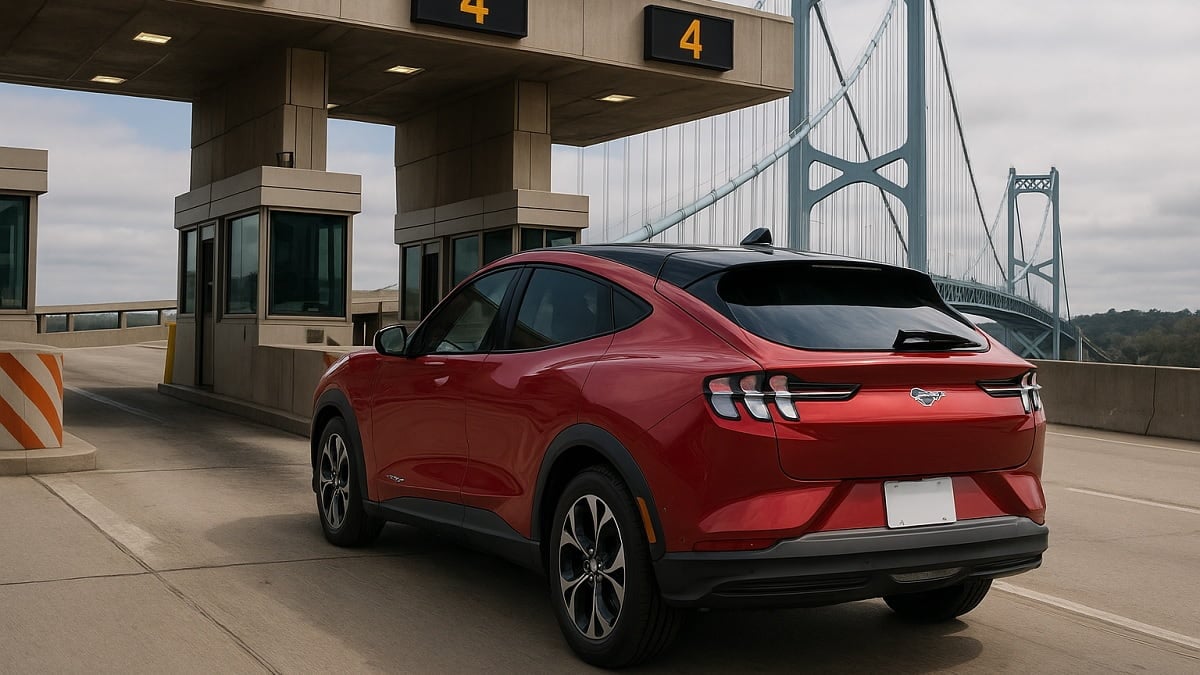Although electric vehicles are usually exempt from emissions testing, they often face high registration fees. Higher fees are intended to ensure that EV drivers contribute to road maintenance and infrastructure funding, but the policies vary wildly across the country as states struggle to cope with declining fossil fuel tax revenues.
It’s a popular subject on social media. Here’s an active thread on Reddit started by 0ne_Wheel_Man about why EV registration fees are the wrong solution:
“Yes, I love spending $750 to renew the registration on our Leaf and Bolt which don't get driven that much. My neighbor pays $300 for their 3 pickup trucks.”
Further down the thread, ZeroWashu takes on an amiable tone:
“I am not defending the disparity in renewals, I spend $214 in additional to regular renewal of $20 in Georgia, but it’s going to be a long time before I am upside down given I did receive the tax credit on my purchase.”
Further down, LoneStarGut comments on Texas’ weight-based vehicle registration surcharge:
“Texas does that – the lightest vehicles are $50.75/year (to 6000 pounds), then $54.00 for 6000–10000, and $110 for 10001–18000, $205 for 18001–25999, etc.”
The highest charges appear to be in Utah where EV drivers can face fees equivalent to $368 annually, New Jersey at $290, Georgia around $325, and Tennessee about $235. On the low end, Colorado, Hawaii, and South Dakota charge modest flat fees of about $50.
In some states, high EV registration fees seem confused and at odds with broader policies. For example, some environmentally friendly states that actively promote clean energy and climate policies have introduced surprisingly high electric vehicle registration fees. This creates a contradiction between their stated environmental goals and the financial burden placed on EV owners. States like Washington and California, known for strong climate action, charge annual EV fees well above the national average. These fees, intended to recover lost fuel tax revenue, may discourage EV adoption, especially among lower-income drivers. As these states push for emissions reductions, high EV fees can send mixed signals and potentially undermine efforts to transition to a more sustainable transportation system.
The Coming Gas Tax Dilemma
As electric vehicle market share increases, both federal and state governments in the United States are working to address the decline in gasoline and diesel tax revenue that traditionally funds road maintenance and infrastructure. Several states have introduced annual registration fees for electric vehicles. Some states are also piloting mileage-based user fee programs, which charge drivers based on the number of miles they drive rather than the amount of fuel they consume. At the federal level, discussions are underway about implementing national road usage charges and expanding pilot programs to evaluate their effectiveness. These efforts aim to ensure that all drivers, regardless of vehicle type, contribute fairly to the costs of maintaining and improving transportation infrastructure. As EV adoption grows, funding models must adapt to maintain sustainable and equitable revenue streams.
The United States, federal and state governments together collect over 50 billion dollars annually from gasoline and diesel taxes. The federal government charges 18.4 cents per gallon for gasoline and 24.4 cents for diesel, while state taxes vary widely. This fuel tax revenue helps fund highway maintenance, infrastructure, and transportation projects. However, as electric vehicles become more common, this income is expected to decline. Electric cars do not use taxable fuel, creating a funding challenge for road systems.
This comes at a time when America’s transportation infrastructure is aging rapidly, and the need for expensive repairs is becoming increasingly urgent. Roads, bridges, and tunnels across the country are deteriorating, posing safety concerns and economic challenges. According to the American Society of Civil Engineers’ 2021 Infrastructure Report Card, 7.5% of the nation’s bridges, about 46,154 are classified as structurally deficient, meaning they are in "poor" condition and potentially unsafe without substantial maintenance or replacement. Many roads are riddled with potholes, and critical tunnels are nearing the end of their designed lifespan. Without new funding mechanisms, states will continue to fall behind on essential repairs, leading to more costly fixes and greater safety risks in the future.
In 2022, the European Union collected approximately 145 billion euros from gasoline and diesel taxes used in road transport. This amount represents a major share of the EU's total environmental tax income, which reached around 317 billion euros that year. However, the growing adoption of electric vehicles is expected to reduce this income over time. As more drivers switch to battery-powered cars that do not rely on taxed fossil fuels, governments face the challenge of filling the revenue gap. This shift underscores the need for new taxation models to support infrastructure, transportation, and environmental programs across the EU.
Conclusion

As electric vehicle adoption grows, policymakers need to implement registration fees that ensure fair and sustainable funding for transportation infrastructure. One option is mileage-based user fees, which charges drivers based on the number of miles they travel rather than fuel use. Expanding toll systems is another method, allowing all vehicles to contribute proportionally through road or bridge access fees. Some proposals suggest adding a small fee per kilowatt-hour of electricity used at public charging stations. Weight-based fees are also being considered, since heavier vehicles, including some EVs, cause more road wear. GPS-based, dynamic pricing models could adjust charges based on time of day or location to reflect usage more accurately.
Please Drop Your Thoughts in the Comments Below
How much do you pay in your state to register your EV?
What suggestions do you have to get EV owners to pay a fair share for road maintenance?
Chris Johnston is the author of SAE’s comprehensive book on electric vehicles, "The Arrival of The Electric Car." His coverage on Torque News focuses on electric vehicles. Chris has decades of product management experience in telematics, mobile computing, and wireless communications. Chris has a B.S. in electrical engineering from Purdue University and an MBA. He lives in Seattle. When not working, Chris enjoys restoring classic wooden boats, open water swimming, cycling and flying (as a private pilot). You can connect with Chris on LinkedIn and follow his work on X at ChrisJohnstonEV.
Image sources: AI
Set Torque News as Preferred Source on Google












Comments
Road vehicle user fees are…
Permalink
Road vehicle user fees are only fair when assessed by vehicle weight and miles driven. Because that’s what drives roadway costs.